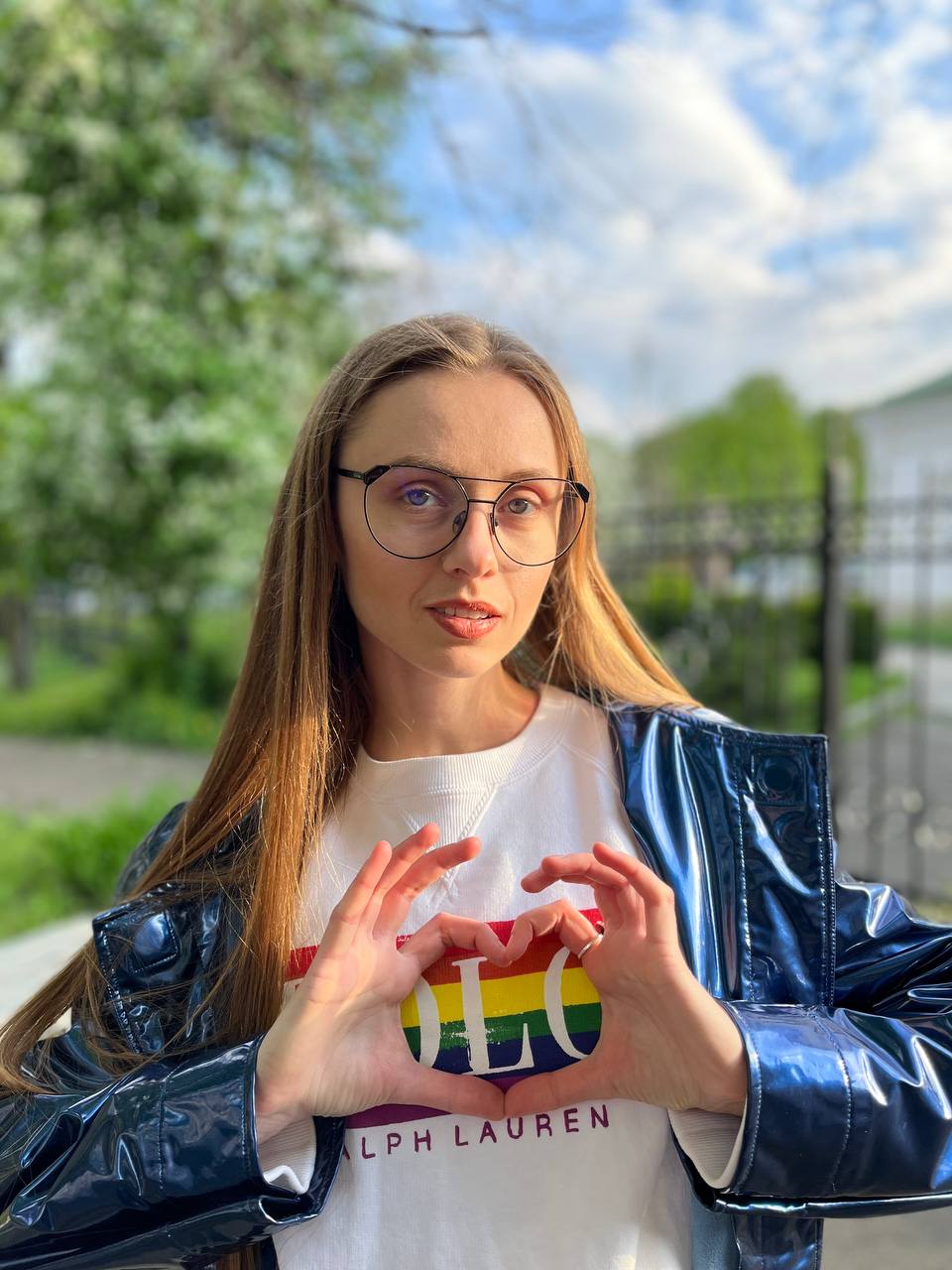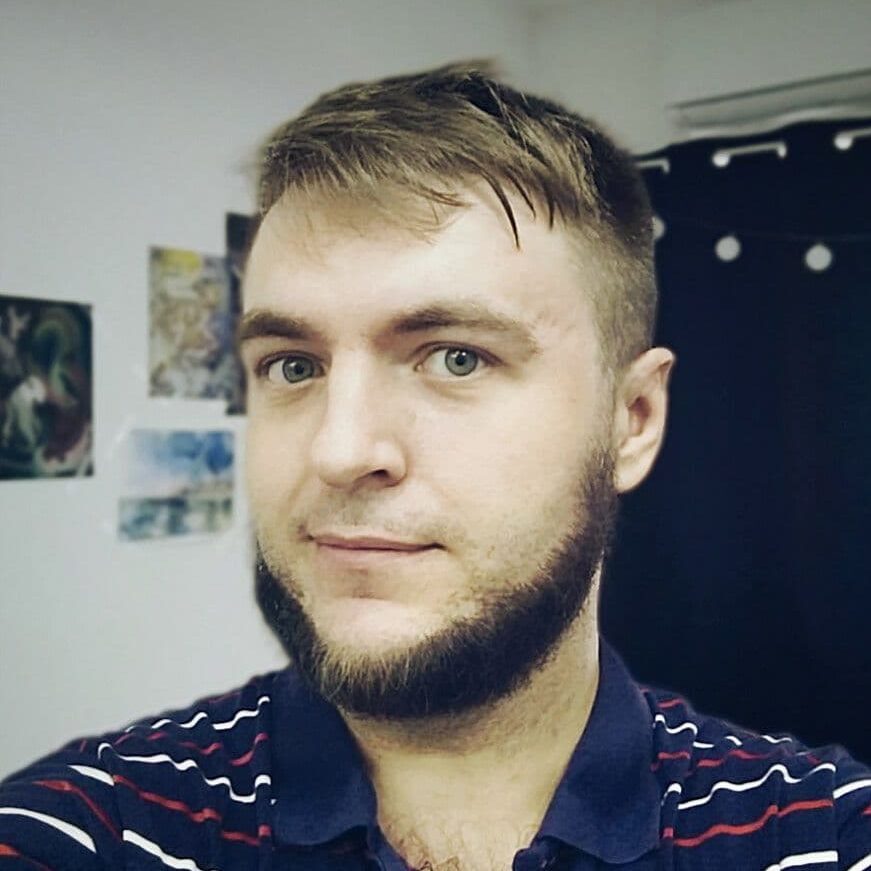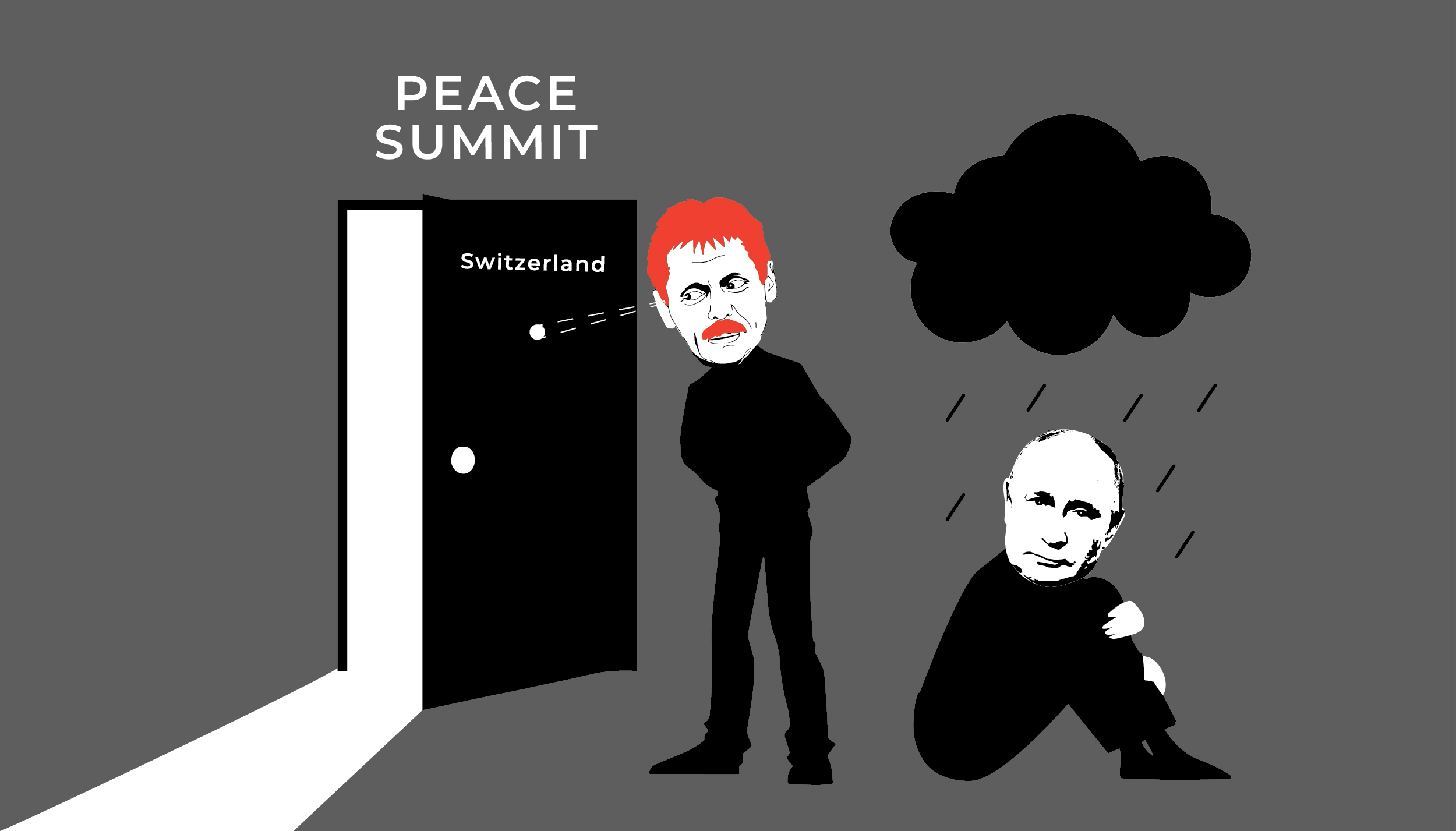

Українською читайте тут.
The first Global Peace Summit, initiated by Ukraine, is set to take place on June 15-16, 2024, in Bürgenstock, Switzerland. World leaders will gather to discuss pathways to achieving a just and lasting peace in Ukraine, guided by international law and the UN Charter. The summit will see participation from 80 to 90 delegations, including representatives from international organizations. Notably, approximately half of these participants hail from the Global South, encompassing regions such as South America, Africa, the Middle East, and Asia. Confirmed attendees include Canadian Prime Minister Justin Trudeau, French President Emmanuel Macron, and U.S. Vice President Kamala Harris. Some dignitaries will join the summit virtually. This meeting in Switzerland marks the next step in implementing the Ukrainian Peace Formula, following previous national security adviser meetings in Copenhagen, Jeddah, Malta, and Davos. (Read more about the reaction of Russian propaganda to these meetings here.)
In Switzerland, a surge in cyber attacks and disinformation was recorded ahead of the summit. Swiss President Viola Amherd noted that cyber attacks have become more frequent in recent weeks. "The disinformation campaign is so extreme that one can see that little of it reflects reality," she said. Swiss Foreign Minister Ignazio Cassis mentioned there is a clear "interest" in disrupting the talks but declined to specify who might be behind the cyber attacks when asked if Russia was involved.
The participants of the Swiss summit are tasked with developing a joint negotiating position to be presented to Russia, whose involvement is anticipated in subsequent negotiation stages. Russia was not invited to the conference in Switzerland, partly due to Ukraine's stance and partly due to a lack of interest from the Kremlin. This disinterest is confirmed by the Swiss side. "The problem is that Russia declined in advance, even before they were sent an invitation, citing a lack of interest. Foreign Minister Lavrov himself told me in January that this would be a pro-Ukrainian event," explained Swiss Foreign Minister Ignazio Cassis.
Russia is not participating in the negotiations because it has made it clear from the outset that it is not interested in this initiative or in discussing and implementing the Ukrainian Peace Formula. Previous attempts to negotiate peace (in various formats) were largely a façade for preparing a full-scale invasion and escalating the war. According to the Ukrainian Foreign Ministry, during the first eight years of the war (2014-2022), Ukraine engaged in 200 rounds of negotiations with Russia and reached 20 ceasefire agreements. After the full-scale invasion began, Russia and Ukraine held several rounds of talks, the last of which took place on March 29, 2022, in Istanbul, but these efforts did not bring peace any closer.
In our previous articles, we explored three alternatives to the Peace Formula that Moscow is trying to promote: Yalta-3, Finlandization, and the Korean scenario, all of which indicate that Putin is not genuinely willing to discuss anything other than Ukraine's surrender.
For more on the conditions under which countries might agree to permanent peace in Ukraine and how Russia is attempting to resist this, read our detailed analysis.
Peace initiatives 2014–2022
The search for peaceful solutions to the Russian-Ukrainian war has been ongoing for the past ten years, ever since Russia's illegal annexation of Crimea. Negotiations have taken place in various formats, including the Minsk format with the Trilateral Contact Group (Ukraine, Russia, OSCE), and the Normandy Four (Ukraine, Russia, France, Germany), which sometimes met in a "reduced format" (occasionally without Russia or without Ukraine).
There have been numerous peace initiatives, such as:
1. Minsk-1 and Minsk-2
2. The "Poroshenko Plan" presented by newly elected President Petro Poroshenko in 2014
3. The "Steinmeier Formula" developed by German Foreign Minister Frank-Walter Steinmeier in 2015
4. "Morel's Plan" proposed by French diplomat Pierre Morel in 2015
5. "Avakov's Plan" from Minister of Internal Affairs Arsen Avakov in 2018
6. "Sajdik's Plan" put forward by OSCE Special Representative Martin Sajdik in 2019
7. "Kravchuk's Plan" articulated by Ukraine's first president, Leonid Kravchuk, in 2020
Each of these initiatives outlined different sequences of steps aimed at de-escalation, ranging from the demilitarization of the occupied territories to holding elections there, and each received varying levels of approval within Ukrainian society. When Russia did respond, it typically insisted on the order of implementation of the so-called "Minsk Agreements" as proposed by Moscow, often with a clear preference for political components over security ones—advocating for elections to be held first, followed by the withdrawal of troops and demilitarization.
However, the full-scale invasion "nullified" all previous peace initiatives, revealing Russia's preference for war over peace.
Ukrainian Peace Formula
Against the backdrop of the initial failure of the Russian aggression in the style of a "blitzkrieg" and the subsequent retreat of Russian forces from the Kyiv region and northern Ukraine in the spring of 2022, new attempts to end the war began to emerge. In March 2022, a series of meetings between Russian and Ukrainian delegations took place in Belarus and Turkey, but no agreement was reached.
In November 2022, President of Ukraine Volodymyr Zelenskyy presented a 10-step Peace Formula during the G20 leaders' summit. This formula includes:
· Returning the Zaporizhia NPP to Ukraine's full control and ensuring radiation and nuclear safety in Europe.
· Ensuring food security and the export of Ukrainian grain to impoverished countries.
· Promoting energy security and imposing restrictions on Russian energy resources.
· Releasing all prisoners of war and deportees, including the return of Ukrainian children.
· Restoring Ukraine's territorial integrity to its 1991 borders.
· Withdrawing Russian troops from Ukrainian territories.
· Establishing a tribunal for Russian war criminals.
· Preventing ecocide.
· Providing security guarantees for Ukraine.
· Documenting the end of the war.
On February 23, 2023, the UN General Assembly supported the Ukrainian draft resolution "On a just and stable peace in Ukraine" with 141 votes out of 193. This resolution demands the complete withdrawal of Russian armed forces from Ukrainian territory, the cessation of hostilities, holds Russia accountable for its aggressive war, and reaffirms Ukraine's territorial integrity.
At the meeting in Switzerland, the main focus is on three key points of the Ukrainian Peace Formula: nuclear security, food security, and the return of kidnapped Ukrainian children. The aim is to garner broad international support for Ukraine's conditions for entering direct negotiations with Russia in 2025 or later, reports BBC Ukraine, citing sources within the authorities. All other points, including the ceasefire, troop withdrawal, and security guarantees, will not be discussed.
The new "doves of peace" and the Global South
Notably, after 2022, countries from the so-called Global South have joined the search for peaceful solutions to the conflict. In 2023, several peace initiatives emerged from this region, including the Xi Plan (proposed by Chinese President Xi Jinping in February 2023), the Lula Plan (an initiative by Brazilian President Lula da Silva in April 2023), and the African Plan (presented in 2023 by the presidents of South Africa, Egypt, Zambia, the Republic of Congo, and Uganda).
The increased involvement of these countries in seeking diplomatic solutions for peace in Ukraine can be partly explained by the impact of the food crisis caused by Russian aggression. The conflict has disrupted the supply of Ukrainian grain and other agricultural products, leaving populations in the Middle East, North Africa, and West Africa without crucial food sources. Thus, stabilizing the situation in Ukraine, which has been a key food supplier for these regions, is of paramount importance.
However, some diplomats believe that the timing and nature of these peace plans are influenced by Russia. "All these peace initiatives actually have one common denominator—Russia. Russia... is trying to activate the topic of these peace talks—'everything for the sake of peace.' And it promotes this thesis through its allies and partners," suggests Volodymyr Ogryzko, the former head of the Ministry of Foreign Affairs of Ukraine. This perspective also encompasses the unclear and "secret" plan of the Pope, who, after meeting with Hungarian Prime Minister Viktor Orbán and Metropolitan Hilarion of the Russian Orthodox Church on April 30, 2023, stated that the Vatican was participating in a secret peacekeeping mission to try to end the full-scale war against Ukraine initiated by Russia.
A key difference between these "peace plans" and the Ukrainian Peace Formula is the focus on an actual ceasefire along the front line, but without the withdrawal of Russian troops.
In June 2023, Indonesia presented a peace plan, with its president becoming the first Asian leader to visit Kyiv following the full-scale invasion. Additionally, when discussing peace initiatives, it's important to highlight the efforts of Turkish President Recep Tayyip Erdogan. While he did not propose a specific road map for settlement, Erdogan assumed a peacemaking role, particularly during the first year and a half of the larger conflict. Turkey served as a negotiating platform between Ukrainians and Russians, facilitated the implementation of the Black Sea Grain Initiative, and played a significant role in prisoner exchanges.
The United Arab Emirates also acted as a mediator between the Ukrainian and Russian sides, facilitating several prisoner exchanges, notably in January, February, and May 2024.
Several peace plans presented in 2023 originated from countries that had not been allies of Ukraine until 2022. Some of these nations tend to align more with Moscow than with Kyiv. Consequently, Ukraine's challenge is to find a strategic approach to engage with these countries and at least partially win them over. The Swiss summit represents one such effort. Recognizing this, the Kremlin is actively working to thwart Ukraine's plans. In 2023, Moscow sought to distract from the Ukrainian Peace Formula by promoting various alternatives through its allies. By 2024, it is attempting to dissuade Ukraine's potential allies from participating in the Swiss Peace Summit.
"Fake summit": the main tactics of discrediting
Russia has approached attempts to discredit the Peace Summit from multiple angles. Firstly, by promoting the idea that any meetings held without Russia's participation are entirely meaningless, Russia aims to elevate its own status. The Kremlin has also argued that if the USA is not represented at the highest level, these negotiations should be disregarded. This echoes Russia's longstanding position that it is willing to negotiate only with "equals," and since 2014, it has consistently stated its preference to discuss the "fate of Ukraine" directly with the USA, thereby undermining Ukraine's sovereignty.
Vyacheslav Volodin, the Speaker of the Russian State Duma, attempted to disparage the level of representation at the Swiss Forum by saying, "Instead of the prime minister, the minister of the disability insurance system will go to Switzerland from Australia. And in this, most likely, a deep meaning is hidden. There will be at least one mentally disabled person at this meeting - Zelensky." Despite Kyiv's request for at least a deputy prime minister, Australia will be represented by Bill Shorten, Minister of the National Disability Insurance Scheme. On the same date as the Summit, Australian Prime Minister Anthony Albanese will be meeting Chinese Premier Li Keqiang. Given that various countries are adjusting their plans for representation at the conference for different reasons, Russian officials are seizing every opportunity to manipulate and distort these changes.
In contrast to Russia's attempts to discredit the Swiss summit, some countries emphasized the importance of not only participating in negotiations but also continuing their military and infrastructural support for Ukraine. For instance, Canadian Prime Minister Justin Trudeau highlighted the importance of focusing on the return of children abducted by Russia from Ukraine, affirming that Canada would provide "everything necessary for Ukraine not only to win this war but also to continue to prosper and lead in the future." Canada leads the International Coalition for the Return of Forcibly Displaced Ukrainian Children.
To divert attention from the Swiss summit, the Kremlin organized its own "alternative" event in Nizhny Novgorod. On June 10-11, Russia hosted a meeting of the BRICS countries (comprising Brazil, Russia, India, China, South Africa, UAE, Iran, Egypt, and Ethiopia) at the level of foreign ministers. This allowed Russian propaganda to portray the Bürgenstock summit as a "Swiss fake" and promote the narrative that "everyone has their own peace conference now," a message that was disseminated through a propaganda Telegram channel with 416,000 subscribers.
Moscow has previously propagated the manipulative thesis that BRICS is a more influential alternative to the G7. Russia is striving to elevate the importance of non-Western initiatives to resolve the war, arguing that Western efforts primarily serve the interests of the USA and NATO.
This time, Russia attempted to promote the notion that the "anti-Western" bloc had developed an effective "alternative position" on Ukraine. Russian propaganda claimed that the "anti-Western coalition" is expanding so rapidly that allegedly nearly six dozen new members are interested in joining BRICS, the Shanghai Cooperation Organization, and the Eurasian Economic Union. However, these organizations have not produced any concrete resolutions or decisions regarding a step-by-step plan for establishing peace. It remains questionable what peace mediation can be expected from organizations that include the aggressor state as a member.
Discrediting, ignoring and the China factor
The latest statements by Putin and his associates regarding the end of the Ukrainian President's term highlight the Kremlin's ambivalent stance. On one hand, Russia signals that it will only negotiate with representatives of the Ukrainian authorities it deems legitimate. On the other hand, it suggests that the Russian leadership is generally uninterested in negotiations, not just with Volodymyr Zelensky, but with any leader of a neighboring country that it does not control.
On the eve of the Swiss Summit, Putin's press secretary, Dmitry Peskov, told Russian journalists that the Kremlin "will monitor this absurd coincidence." He also commented on the refusal of China and Pakistan to participate in the Peace Summit, stating that "the non-participation of a number of countries is an absolutely understandable position. Countries do not want to participate in an event that does not have objectives. This is an absolutely absurd activity."
In mid-May, Putin stated that Russia had not refused to hold negotiations "based on the realities on the ground," unlike Kyiv, and emphasized Russia's readiness to negotiate according to any scheme other than the "Zelenskyy formula." However, shortly after these statements, Russia launched an offensive in the Kharkiv region, revealing its true stance on the negotiation process.
Russia is leveraging China's refusal to participate in the Swiss Peace Summit to undermine the political and diplomatic significance of its participants. China's hesitance to commit to the conference in mid-June created a sense of "intrigue." For instance, in March, China's ambassador to Switzerland mentioned that Beijing was considering attending the conference, and Chinese representatives had participated in a preparatory meeting in Jeddah, Saudi Arabia, the previous summer.
At the Davos meeting in January, China's representative ignored the discussion of the Ukrainian peace formula. Despite this, Kyiv continued its efforts to convince China to join the negotiations, holding bilateral meetings at the deputy foreign minister level in early June. However, these efforts were unsuccessful, and Beijing officially declined to participate at the end of May.
It's worth noting that when Beijing presented its own "peace formula" last year, it referred to Russia's full-scale invasion of Ukraine as a "Ukrainian crisis." This formula included 12 points, some of which superficially aligned with the Ukrainian peace formula. However, Beijing's focus on issues such as "ending unilateral sanctions" and "maintaining the stability of industrial and supply chains" complicated finding common ground. Additionally, China's implicit opposition to Ukraine's aspirations for NATO and EU membership, highlighted in its call to "reject the Cold War mentality," indicated a different vision for Ukraine's post-war future, suggesting that regional security should not be achieved by strengthening or expanding military alliances.
Despite the challenges in aligning positions with China, Ukrainian authorities persisted in seeking a compromise to involve Beijing and countries aligned with Beijing in Asia and Africa. This effort was exemplified by Volodymyr Zelenskyy's trip to Singapore on June 1 to participate in the Shangri-La Dialogue conference. During this conference, discussions included security in the Asia-Pacific region, the conflict between Israel and Hamas, and Russia's war with Ukraine.
However, shortly before the Swiss Summit, the head of Chinese diplomacy, Wang Yi, reiterated China's stance on convening "a real peace conference, recognized by both Russia and Ukraine, with equal participation of all parties and an honest discussion of all peace options." Beijing remains, if not an overt, then a "shadow" ally of Russia, supporting peace initiatives favorable to Moscow and urging the dismissal of those that are not.
In preparation for the Peace Summit, Ukrainian diplomacy maneuvered strategically to maximize potential gains. According to Donald Wittman's "rational approach" model, a peaceful settlement is more likely when the hostile parties have roughly equal resources and are equally averse to risk and further escalation, as a high risk appetite typically leads to continued conflict. Moreover, significant losses can create a pain threshold that inclines the parties towards negotiations. Ukraine, a country engaged in war but without a decisive breakthrough on the battlefield, has initiated a peace framework that largely preserves and implements its interests. This initiative is rooted in the principles of international law and the UN Charter, emphasizing the moral and legal imperative to repel aggression.
The fact that Russia was unable to completely derail the organization of the Peace Summit in Switzerland, and that numerous world leaders will attend in person, marks a significant achievement for Ukrainian diplomacy. Although discussions at the Summit will cover only a few points of the "Peace formula," it will serve as a starting point for consolidating Ukraine's position with many countries in the "Global South." By holding consultations in separate groups on specific issues, Ukraine aims to persuade both neutral and skeptical countries that may be susceptible to pro-Russian disinformation narratives.


